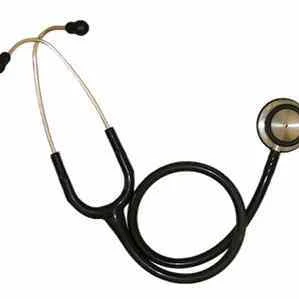According to researchers at RTI International, the Baylor College of Medicine and Michael E. DeBakey Veterans Affairs Medical Cente, it is time to take some action regarding misdiagnosis since nearly 12 million people in the U.S. are misdiagnosed annually. The opinion piece is published in the New England Journal of Medicine.
Mark Graber, MD, a Senior Fellow at RTI International, and Hardeep Singh, MD, of Baylor and the DeBakey VA highlight in the report "Improving Diagnosis in Health Care" that there is a need for individual and collaborative action from all stakeholders involved in healthcare.
"The committee concluded that diagnostic errors are common," Graber said. "Each of us is likely to experience one or more diagnostic errors in our lifetime, some of which could have very serious consequences. Many of these errors could be prevented. Both unusual and very common diseases are being missed, including heart disease, cancer and infections."
There are several types of diagnostic errors. These include a diagnosis being missed completely, a wrong diagnosis altogether and/or a delayed diagnosis leading to inappropriate treatments and unnecessary tests. Dr. Singh points out that diagnosis is the foundation of medicine and since diagnostic errors are difficult to detect and are less amenable to systems-based interventions, there is a need for a change in the overall system -in doctors' offices, clinics and hospitals.
The report makes the following recommendations:
- To reform the teaching of diagnosis
- To ensure that health information technology supports the diagnostic process
- To strengthen teamwork and make patients part of the diagnostic team
- To measure and learn from errors in order to create a culture of diagnostic safety
- To reform the malpractice and reimbursement systems
- To encourage research for the evaluation of different interventions in order to reduce the likelihood of error and harm.
See also: IOM Report: Teamwork Critical for Improved Diagnosis
Dr. Singh points out that there is a need for more active research so that errors are better identified and healthcare practitioners can learn from them. Due to the use of unfriendly electronic records systems, productivity pressures and reimbursement systems that don't encourage listening to patients, doctors have high administrative burdens. There is a need to change these systems and to create environments that promote reliable diagnosis.
Source: RTI International
Image Credit: Wikimedia Commons


![Tuberculosis Diagnostics: The Promise of [18F]FDT PET Imaging Tuberculosis Diagnostics: The Promise of [18F]FDT PET Imaging](https://res.cloudinary.com/healthmanagement-org/image/upload/c_thumb,f_auto,fl_lossy,h_184,q_90,w_500/v1721132076/cw/00127782_cw_image_wi_88cc5f34b1423cec414436d2748b40ce.webp)





